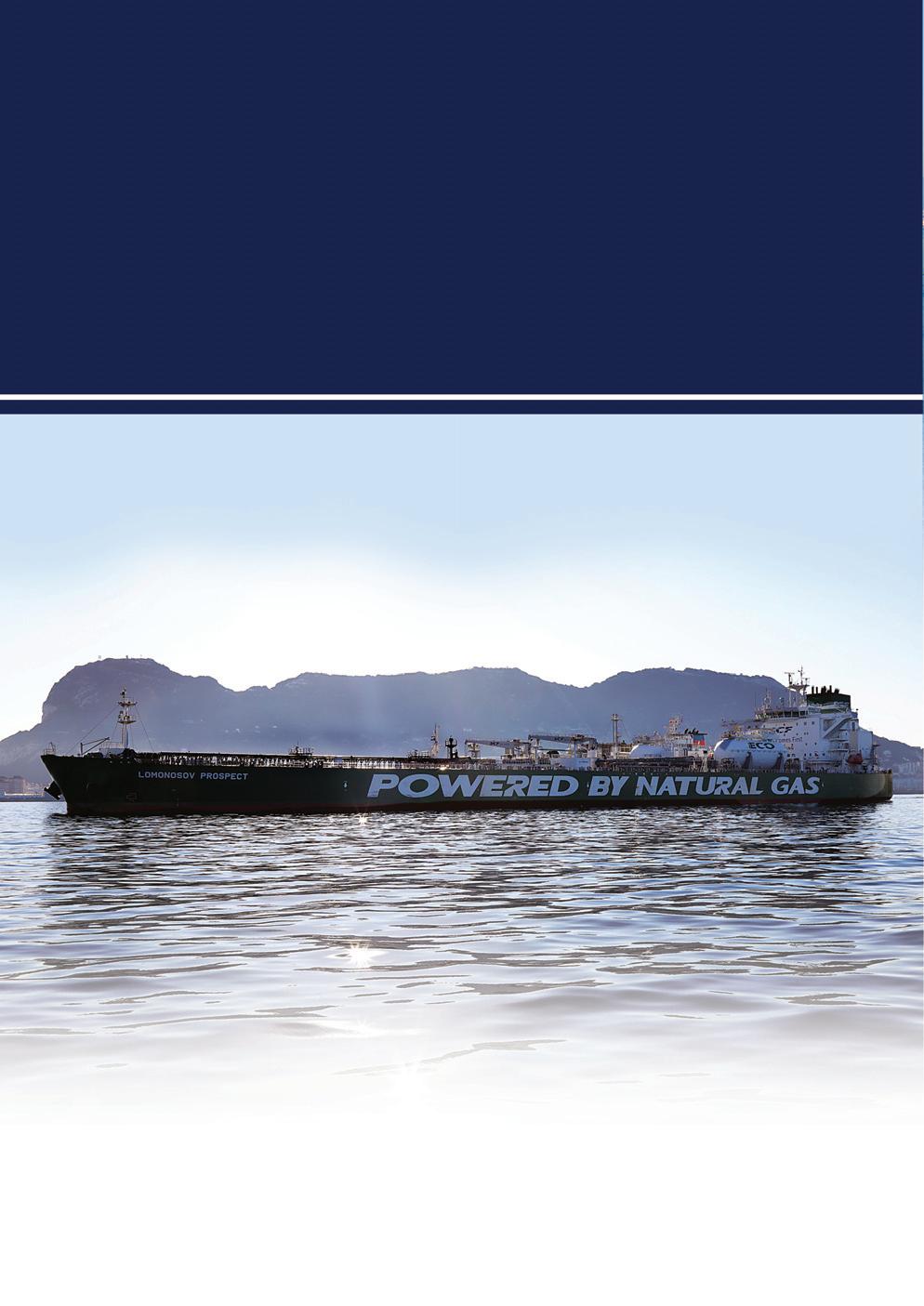
7 minute read
Rock ‘n’ role
PORT OF GIBRALTAR I PROFILE
The Port of Gibraltar, home to shipping expertise and a comprehensive range of support services, is marketing its pole position worldwide. “Our reputation as a centre of maritime excellence is one of the many reasons why the Port of Gibraltar continues to punch above its weight,” said the Minister for Business, Tourism and the Port, Vijay Daryanani. Report from Colin Chinery.
Advertisement
ROCK ROLE ‘n’
IN real estate speak, Gibraltar is hot property; a place in the sun, kerb appeal, quality of life, and a favourable fiscal climate including VAT-free status. And that ace of deal makers, location, location, location.
Centrepiece of this rocky outcrop at the southern tip of Europe, a 6.5 sqkm self-governing territory of the United Kingdom, is the Port of Gibraltar, offering an expertise and flexibility in ship management services matched by few other ports.
Of the 60,000 vessels entering the eight-mile-wide Strait of Gibraltar each year, over 9,000 call in at this strategic haven at the Mediterranean and Atlantic shipping lane crossroads, mainly for bunkering, making Gibraltar the biggest bunker hub in the Mediterranean.
Locational magnet
With the magnet of its prime location and daily flights to the UK from the local airport, the Port of Gibraltar provides an extensive range of other services to vessels of every size and type, including crew changes, hull cleaning, surveys, legal processes, store and spares provision.
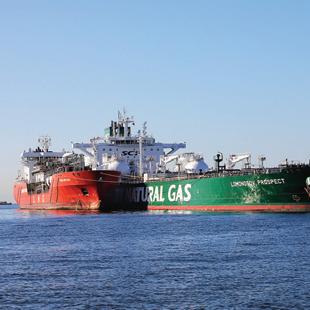
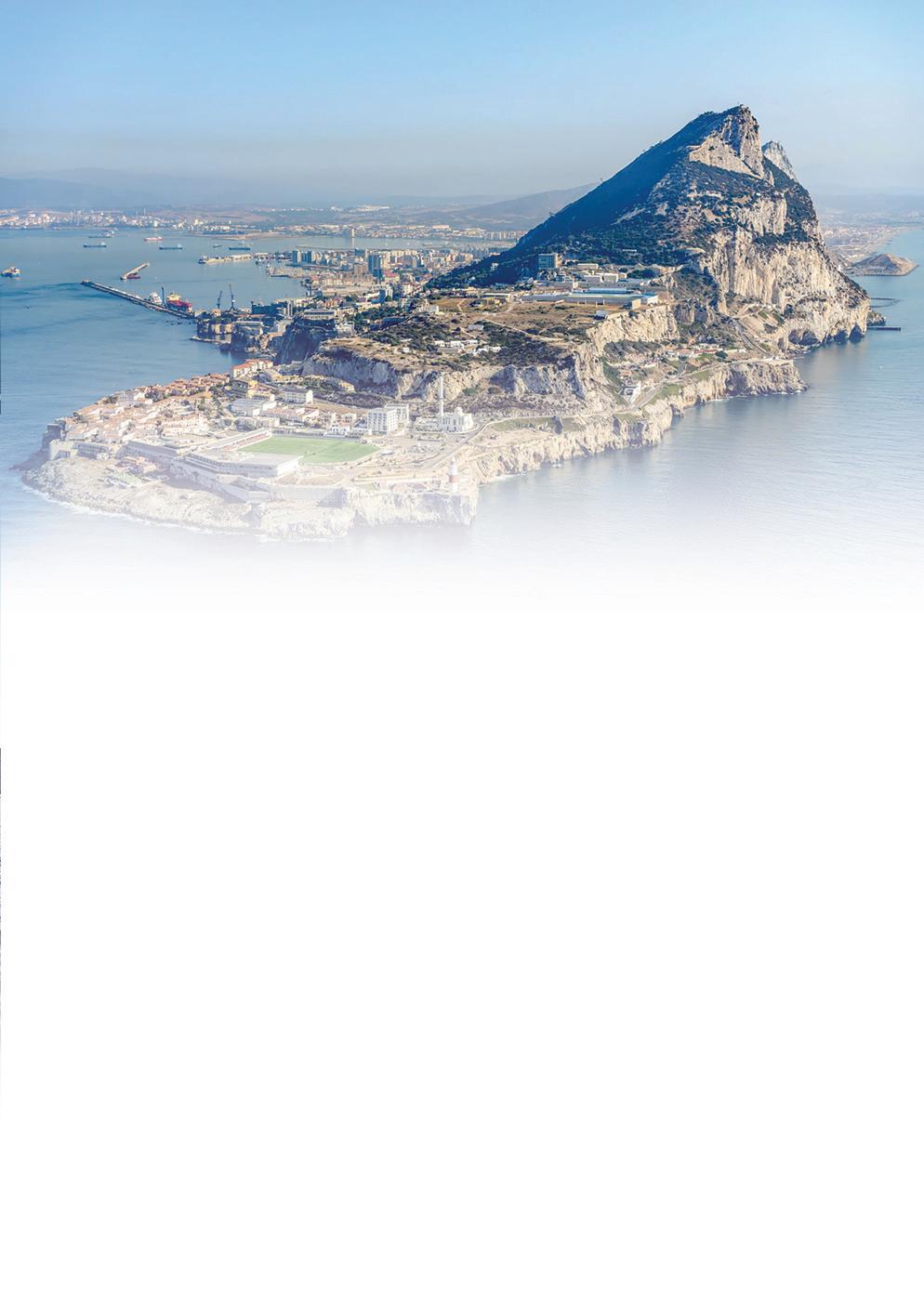
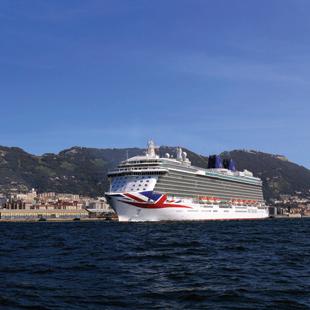
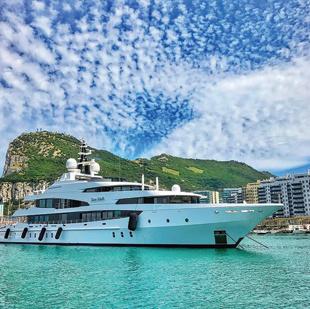
Overseeing these operations is the Port Authority, with the strategy of building on Gibraltar’s unique geographical position and delivering best service by providing a critical link between stakeholders.
At government level, the harbour lies within the brief of the Minister for Business, Tourism and Port, Vijay Daryanani. Appointed in late-2019, his mission is driven by an aggressive marketing campaign to bring new business to the port.
“Our reputation as a centre of maritime excellence is one of many reasons why the Port of Gibraltar continues to punch above its weight when it comes to regional competition,” he said.
Top rank
Gibraltar provides a service and support network that would credit many larger ports.
Cruise ships for example – a segment slowly emerging from pandemic slump – can berth alongside both sides of the cruise terminal within an hour of leaving the main shipping lanes, with a 940m quay length allowing four medium sized or two large sized vessels to berth alongside simultaneously.
Yachting facilities in Gibraltar are a major draw and include a choice of three commercial marinas and a berthing facility for superyachts at the Mid-Harbour Marina. The port is also a major crew changing hub, with the airport minutes from the cruise terminal, and entry formalities for crew streamlined and easy to use for personnel joining ships
Gibdock ship repair facilities includes three dry docks, the largest accommodating vessels up to 270m long. The shipyard also carries out work alongside or at anchor, with several companies performing underwater repairs, hull cleaning and maintenance.
Spare parts and provisions are handled by numerous shipping agents, and there are first-class medical facilities, chandleries and yacht brokerage services on hand, with comprehensive waste reception and storage facilities available for vessels needing to safely discharge offshore waste and MARPOL-prohibited substances.
Outstanding infrastructure
Gibraltar’s outstanding professional maritime infrastructure and wide expertise were underscored during Covid-19, a global maritime crisis which saw the Port of Gibraltar remaining open and functioning.
PORT OF GIBRALTAR I PROFILE
“In 2019 we had 9,149 vessels entering our territorial waters, and in 2020 – the pandemic year – we had 9,480, an extra 300 vessels,” said Mr Daryanani.
“Not only that, but we have also managed to keep our gross tonnage statistics of vessels visiting Gibraltar’s bunkering facilities all very similar to pre-pandemic levels.”
Gibraltar is the Mediterranean’s biggest bunkering port – a ranking Mr Daryanani wants to re-enforce – with delivery typically made by barge while a vessel is at anchor in Gibraltar Bay. With all grades of marine fuel checked and supplied, deliveries can also be made alongside.
In March 2021, Shell completed its first LNG bunkering services at the Port of Gibraltar, when its chartered LNG bunker vessel Coral Methane supplied LNG to Lomonosov Prospect, an Aframax tanker operated by Sovcomflot, (Russia’s largest shipping company), one of the global leaders in the maritime transportation of hydrocarbons.
Minister for Business, Tourism and the Port, Vijay Daryanani
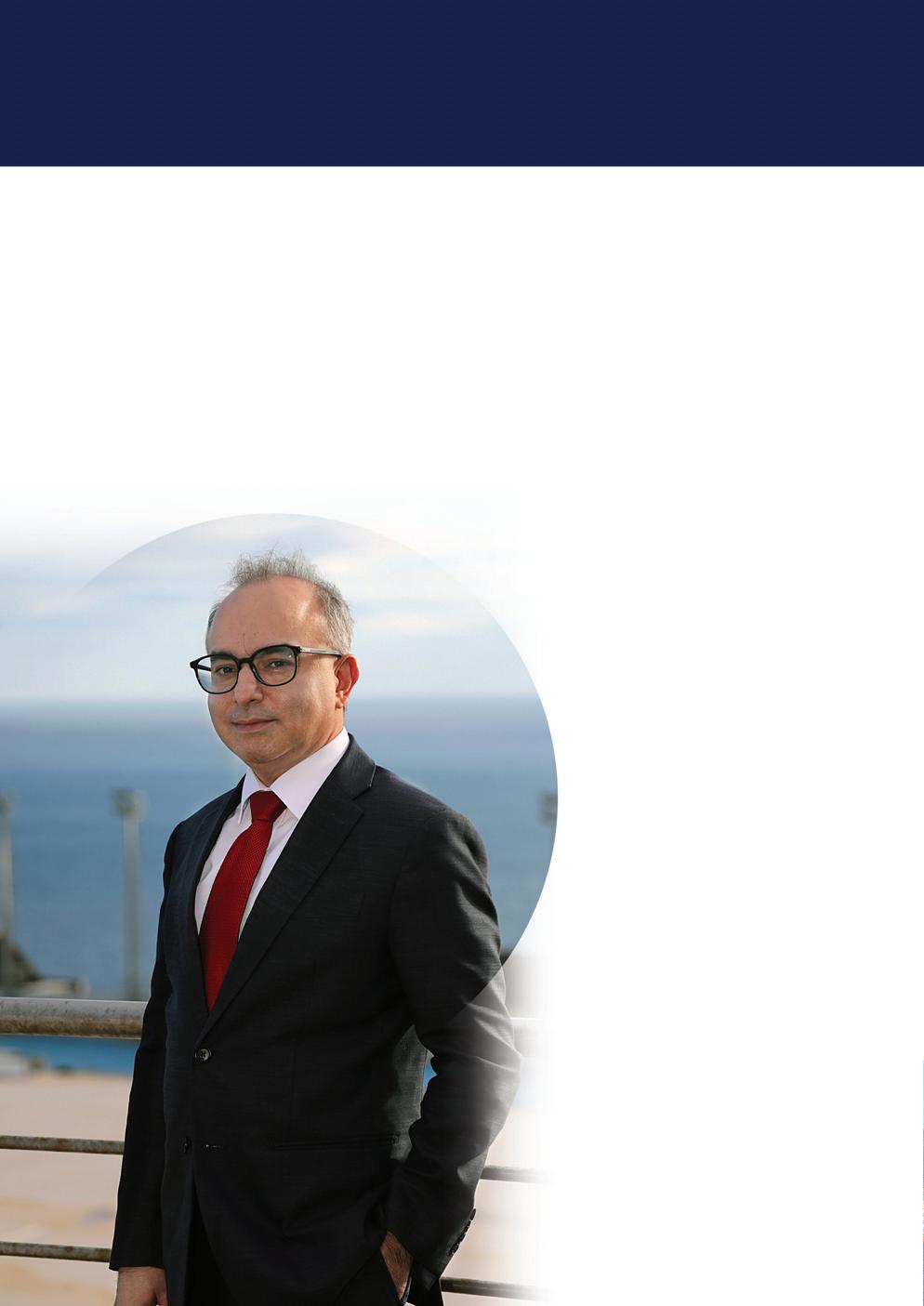
A greener Gibraltar
Welcoming this milestone for the port and its LNG bunkering activity, and a further step towards a greener Gibraltar, Mr Daryanani said it “further sets down a marker that the Port of Gibraltar is at the forefront of the drive for greater sustainability and improved environmental performance of the maritime industry internationally.
“It also highlights the key strengths of the port, namely our adaptability and responsiveness to the wider trends developing within the industry.”
While the pandemic demonstrated the port’s resilience and outstanding capabilities, it remains a challenge “lurking in the background,” said Mr Daryanani.
“It is not a Gibraltar issue of course, but a worldwide one. However what other jurisdictions do, or are affected by also impacts on Gibraltar.”
The Brexit factor
The other challenge – and the major one – is the terms of a postBrexit settlement, an on-going and contentious issue between the UK and Spanish governments. Gibraltar was ceded to Britain under the 1713 Treaty of Utrecht that brought the 12-year War of the Spanish Succession to an end. But Spain’s determination to reclaim it has been far more durable, and never more so than since the UK’s exit from the EU. Most of its 34,000 residents are British citizens, who voted almost unanimously in a 2002 referendum to remain under sole British sovereignty. In the 2016 Brexit referendum, 96% of Gibraltarians voted in favour of remaining in the EU. Britain and Spain came to a bilateral understanding over Gibraltar in December 2020 to lay the foundations for a future agreement between London and Brussels over the fate of the strategic Rock. But in July 2021, the then British Foreign Secretary Dominic Raab said he was “disappointed” by EU proposals for a post-Brexit deal and accused the EU of seeking “to undermine the UK’s sovereignty over Gibraltar”.
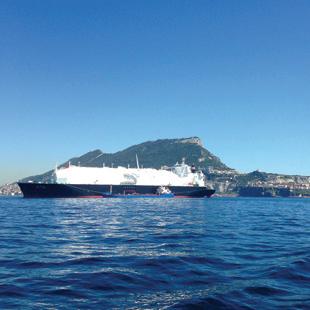
Failure to reach a satisfactory conclusion to the talks could see a ‘hard border’ appear between Gibraltar and Spain – potentially a logistical nightmare for the approximately 15,000 workers that cross the frontier every day.
“Brexit is one of the challenges,” said Mr Daryanani. “It has created uncertainty, and uncertainty is not good for business. But we are looking at factual development rather than rumour. I don’t think we will be affected, but let’s wait and see.”
He added: “I agree it will be a new era either way, whether we have a treaty or not. But at the moment we are optimistic that we will have a treaty. Discussions have started, and fingers crossed, we will get this over the line.”
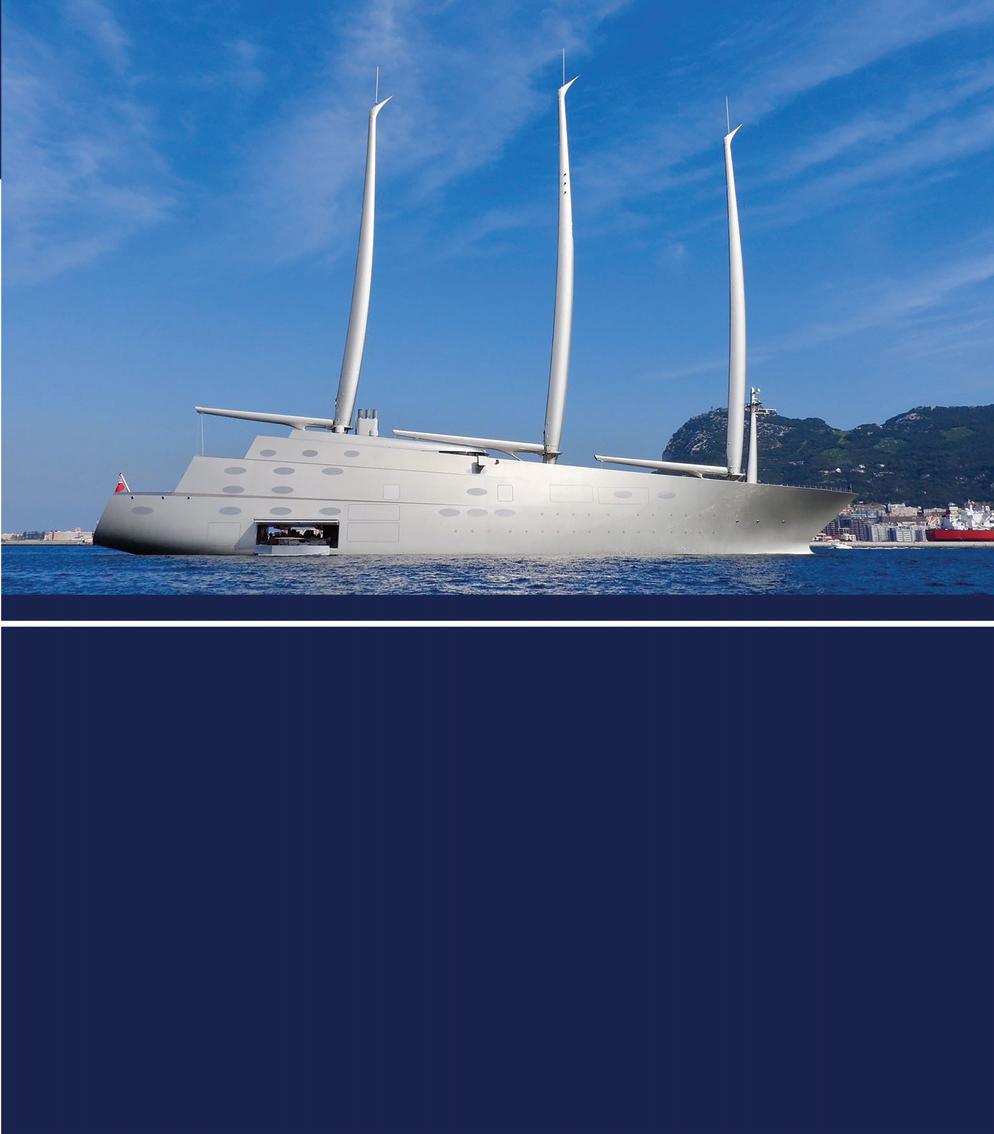
Marketing the port internationally

In the meantime, Mr Daryanani and the Port Authority are marketing hard. With events and tradeshows now opening up post-pandemic, the port had a strong presence at the London International Shipping Week in September, and in November, The Gibraltar Port Authority, together with HM Government of Gibraltar, Gibraltar Maritime Administration, the University of Gibraltar and Petrospot collectively hosted the second edition of the biennial Maritime Week Gibraltar, promoting the thriving maritime sector to a wider international audience
“It is not easy to bring new business into Gibraltar, especially in these uncertain times, but we will keep on working on marketing Gibraltar,” said Mr Daryanani. “We are in a good place, with our strategic location, being British and operating under British law, which is a big plus. Collectively, all of these things help us in the promotion of our port.”
With its wide range of services, very competitive fuel prices and waste oil disposal, Gibraltar Port is a superyacht hub, and one Mr Daryanani is keen to expand.
“I would like to bring more superyachts to Gibraltar. It’s a very important sector and one we want to develop. Ship and yacht registration is also important for us, as are the insurance and legal sectors, and the economy in general.
“We are very competitive for the registration of vessels and yachts, and being British and governed by UK law, a perfect jurisdiction. And of course, we are strategically located at the crossroads of the Mediterranean and Atlantic.
“For me, the most important thing is to bring as much new business to Gibraltar as possible. I am very keen, and have started marketing the Port of Gibraltar aggressively.”
He concluded: “We can do so much more; providing the best possible service for our customers, enhancing our already excellent reputation in the maritime industry worldwide, and marketing Gibraltar as the best place to do business in this region.” n












